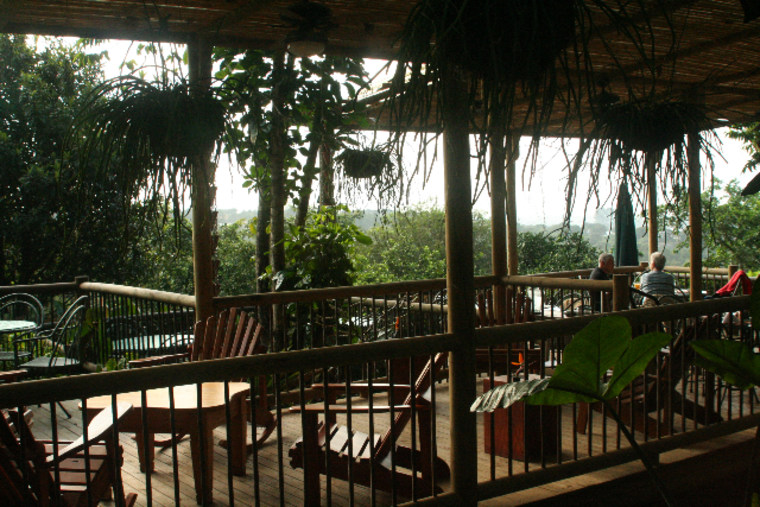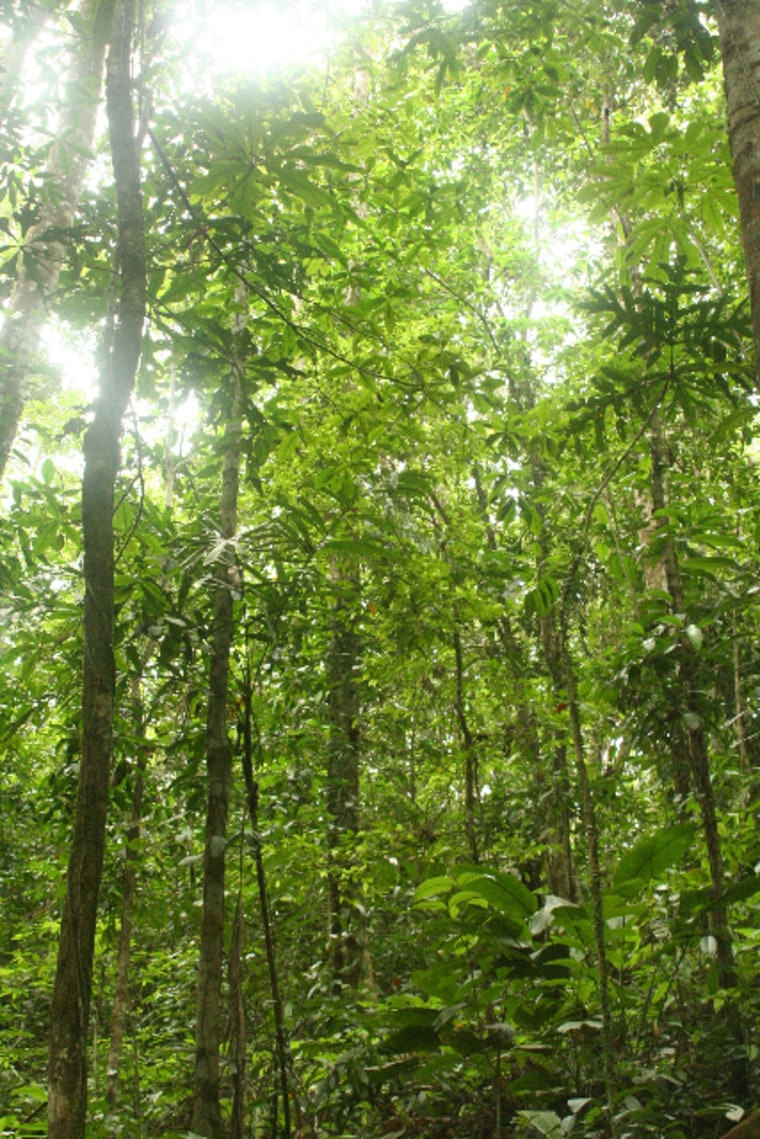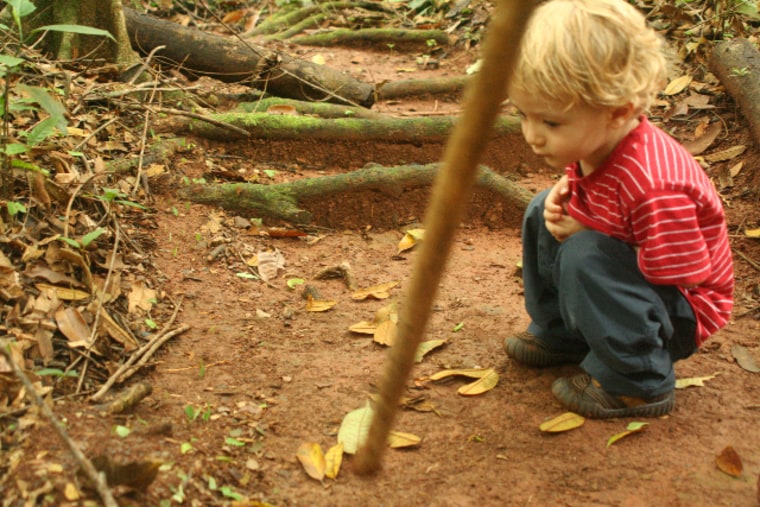The last time I was in Costa Rica I didn’t stay at an eco-lodge, I stayed at the Hotel Presidente in San Jose. I had flown not just from Los Angeles, but all the way from India. I’m not good with jetlag, but this was especially bad, and when I arrived on the evening flight, my hosts asked me to join them in the bar for a drink. I did, and after downing an Imperial cerveza I found another on the table. Then the two spoke to each other, and I found a third. Then I vaguely remember dancing at some unknown hour before stumbling to my room, and falling naked into my bed.
Then, sometime in the deep of the night, I awoke and headed for the bathroom. I think I still thought I was in my hotel in New Delhi as I headed straight down the hall, opened the door, walked a few steps, and heard a click behind me. I spun around, rubbed my eyes and found I was naked in the hallway of the Hotel Presidente.
That’s a bit how I feel where the ecotourism movement is today — it thinks it’s in one room, when in fact it is in an entirely different one.
Having attended and spoken at a number of ecotourism conferences in the last couple of years, and listened to endless reams of dire data, I believe as the concepts of ecotourism have evolved they have become more and more analytical. More data driven; more about cost benefits analyses, about benchmarking; about quantifying guilt ...
And the real motivation for ecotourism is in a room full of magic.
What is touched upon in the “Adventure with Purpose” television specials is the power of narrative, storytelling; of the romance, mystery and the danger of wild places — and these attributes argue, often subliminally, for preservation, and visitation. Most people won’t be compelled to visit a place because it uses certain light bulbs or soap or low volume toilets; or hires locals; or carbon offsets, though these are necessary and good practices.
What most folks seek, I believe, are the unfathomable shadows where the wild things are.

Too many eco-lodges and destinations have become internment centers mapped and planned with no blank spots. The trails are well-marked and monitored. The busses are built for comfort. Around the world at eco-lodge pool sides and lobbies visitors watch from a safe distance ethnic spectacles and performances, loaded with Post-it Note mysticism. The deep, rich cultures and traditions are too often reduced to dinner shows for the mobile rich. In these brief, one-sided encounters, there is little chance to understand the people behind the dances and battle cries, no real celebration of a vibrant, living culture. Visitors are offered the bread crumbs on the floor beneath the big table of cultural apperception.
In these dynamics, there is little room for true discovery.
Yes, the wilderness is vanishing, and cultures are fading, but what saves them are not dry statistics and doomsday scenarios, but rather the emotional sumptuousness and connection that comes from visitation. My job, as an ecotourism advocate, is to figure out how to inspire someone on a couch in a city watching his television or computer screen to get up and make that step and come see and feel the witchcraft of wilderness. Once so touched, travelers become the most passionate advocates for preservation, as the trees and brooks and wild things are as family.

If a place can be unmediatedly wild, without the requisite security and compliant spaces, without adult supervision, it is then faithful to our childlike imaginations of wilderness. The natural sublime is as much about awe as real danger, the peril of avalanches in the Alps for the Romantics; the risks of the rainforests in Costa Rica. The sublime attracts like moths to a flame, where we feel most alive when we can imagine our own demise.
And, ecotourism in its original manifestations was sublime, but we have moved to a different room.
Ecotourism ought to be the great, original adventure, an individual tale of privation, courage, constant vigilance and danger. Done right, it is a journey undertaken with only a fragmentary map constructed out of a patchwork of accumulated local lore and the occasional milepost marked “here be dragons.”

The ecotourism movement may have become too circumscribed. There is a powerful quality in being open-ended, vague at the borders; of being sufficiently unpolished that a visitor can expand upon it in his own mind, projecting himself into its narratives. Too many ecotourism providers today are like unctuous butlers of the imagination, ready to serve every need or desire as it arises; they don’t leave anything implied, unstated or incomplete. They don’t allow us to get lost.
The room we want to be in as ecotourism advocates and providers is one that gives ready and vivid access to wonder, wisdom and breathtaking beauty. It’s simply the magic of an accidental discovery in a wild place, a flitting moment and the resin drop of revelation transformed by luck and alchemy into the amber of preservation.
Richard Bangs is author of 19 books, founder of several digital media properties, sits on the boards of several travel, technology and environmental boards, and is producer and host of the national public television series, “”.
